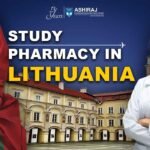
Pharmacy in Sweden
Pharmacy in Sweden represents a crucial component of the nation’s healthcare system, blending traditional pharmaceutical practices with modern advancements. Sweden boasts a sophisticated pharmacy infrastructure, characterized by a commitment to accessibility, quality, and innovation. With a focus on patient-centered care, pharmacies in Sweden serve as hubs for dispensing medications, providing health information, and offering professional advice.
In Sweden, pharmacies play a pivotal role in promoting public health and well-being through their comprehensive services and adherence to strict regulations. The Swedish pharmacy landscape reflects a balance between traditional values and contemporary healthcare demands, ensuring that individuals receive safe and effective medication management. As integral components of the healthcare continuum, pharmacies in Sweden uphold rigorous standards to safeguard the population’s health while continually adapting to emerging trends and technologies.
Why to Study Pharmacy in Sweden?
- High-Quality Education: Swedish universities offering pharmacy programs are renowned for their excellence in education, providing students with comprehensive knowledge and practical skills.
- Cutting-edge Research Opportunities: Pharmacy students in Sweden have access to state-of-the-art facilities and research centers, fostering innovation and exploration in pharmaceutical sciences.
- Global Recognition: A pharmacy degree from Sweden is highly respected worldwide, opening doors to diverse career opportunities in both academia and industry.
- Multicultural Environment: Sweden embraces diversity, offering students from around the world a welcoming and inclusive atmosphere to study and collaborate.
- Advanced Healthcare System: With a focus on patient-centered care and evidence-based practice, studying pharmacy in Sweden provides insight into one of the world’s leading healthcare systems.
- Practical Experience: Pharmacy programs in Sweden often include internships and practical training, allowing students to gain hands-on experience in various healthcare settings.
- Language Proficiency: Studying pharmacy in Sweden provides an opportunity to learn or improve proficiency in Swedish, a valuable skill for global healthcare professionals.
- Career Prospects: Graduates of pharmacy programs in Sweden are well-equipped to pursue rewarding careers as pharmacists, researchers, consultants, and leaders in the pharmaceutical industry.
Top Universities to Study Pharmacy in Sweden
University | QS World University Ranking 2023 | Type of University | Average Annual Fees | Programs Offered |
Uppsala University | 35 | Public | $0-$15,000 | Bachelor’s, Master’s, PhD |
Karolinska Institute | 40 | Public | $0-$15,000 | Bachelor’s, Master’s, PhD |
Lund University | 65 | Public | $0-$15,000 | Bachelor’s, Master’s, PhD |
Stockholm University | 75 | Public | $0-$15,000 | Bachelor’s, Master’s, PhD |
University of Gothenburg | 90 | Public | $0-$15,000 | Bachelor’s, Master’s, PhD |
- Uppsala University: Renowned for its prestigious pharmacy programs, Uppsala University consistently ranks among the top institutions globally. Offering a range of degree levels, including Bachelor’s, Master’s, and PhD, students at Uppsala benefit from world-class education and research opportunities.
- Karolinska Institute: With a strong emphasis on medical and health sciences, Karolinska Institute provides outstanding pharmacy education alongside its cutting-edge research facilities. Students can pursue various pharmacy degrees at different levels while being part of a globally recognized institution.
- Lund University: Lund University offers comprehensive pharmacy programs with a focus on interdisciplinary approaches and practical training. Its strong academic reputation and vibrant student life make it an attractive choice for aspiring pharmacists.
- Stockholm University: Known for its diverse academic offerings, Stockholm University provides top-quality pharmacy education within a stimulating learning environment. Students benefit from extensive research opportunities and access to modern facilities.
- University of Gothenburg: With a commitment to innovation and excellence, the University of Gothenburg offers pharmacy programs that prepare students for successful careers in healthcare and research. Its inclusive atmosphere and strong ties to industry enhance the learning experience for aspiring pharmacists.
Course Curriculum for Pharmacy in Sweden
- Foundation in Pharmaceutical Sciences: Pharmacy courses in Sweden typically start with foundational courses covering basic principles in pharmaceutical sciences, including pharmacology, pharmacokinetics, and medicinal chemistry, providing students with a solid understanding of drug mechanisms and interactions.
- Clinical Pharmacy Practice: As the program progresses, students delve into clinical pharmacy practice, where they learn to apply theoretical knowledge in real-world healthcare settings. This includes patient care, medication therapy management, and pharmacotherapy consultations, emphasizing the pharmacist’s role in optimizing patient outcomes.
- Pharmaceutical Formulation and Manufacturing: Understanding the formulation and manufacturing processes of pharmaceuticals is a crucial aspect of pharmacy education in Sweden. Students learn about drug formulations, dosage forms, and quality control measures to ensure the safety and efficacy of medications.
- Research and Innovation: Pharmacy programs in Sweden often integrate research components, encouraging students to engage in scientific inquiry and innovation. This may involve conducting independent research projects, collaborating with faculty members, and staying abreast of advancements in the field.
- Ethics and Professionalism: Throughout the curriculum, emphasis is placed on ethical considerations and professional conduct in pharmacy practice. Students explore legal and ethical frameworks governing the profession, ethical dilemmas in healthcare, and the importance of maintaining integrity and confidentiality in patient care.
Eligibility Criteria & Admission Requirements for MS in Pharmacy in Sweden
- Language Proficiency: Applicants must demonstrate proficiency in English by providing scores from either the IELTS or TOEFL exams. A minimum score of 6.5 in IELTS or 90 in TOEFL is typically required.
- Standardized Tests: Some universities may require applicants to submit scores from either the GRE or GMAT exams as part of their application. The minimum required scores vary by institution but generally range from 300-320 for GRE and 550-650 for GMAT.
- Academic Certificates: Applicants must hold a relevant academic qualification, such as a Bachelor’s degree in Pharmacy or a related field, from a recognized institution. Transcripts demonstrating satisfactory academic performance may also be required.
- Work Experience: While not always mandatory, some universities may value applicants with relevant work experience in the pharmaceutical field. Work experience can strengthen an application and demonstrate practical knowledge and skills.
- Passport & Student Visa: International students must possess a valid passport and obtain a student visa to study in Sweden. Visa application requirements may vary depending on the applicant’s country of origin.
Table: Standardized Test Scores
Test | Minimum Score |
IELTS | 6.5 |
TOEFL | 90 |
GRE | 300-320 |
GMAT | 550-650 |
Meeting these eligibility criteria ensures that prospective students are prepared to succeed in pharmacy programs in Sweden, contributing to their academic and professional growth in the field of Pharmacy in Sweden.
Documents Required for Studying Pharmacy in Sweden
- Passport: A valid passport is essential for international students applying to pharmacy programs in Sweden. It serves as proof of identity and nationality throughout the application process and during the duration of study.
- Letters of Recommendation (LOR): Applicants typically need to submit two letters of recommendation from academic or professional references attesting to their character, abilities, and suitability for the pharmacy program.
- Statement of Purpose (SOP): An SOP is a personal statement where applicants outline their academic and career goals, reasons for choosing pharmacy in Sweden, and how the program aligns with their aspirations.
- Curriculum Vitae (CV): A comprehensive CV highlighting academic achievements, extracurricular activities, work experience, and relevant skills is required as part of the application package.
- Official High School Transcripts: Official transcripts from high school or equivalent education institutions are necessary to demonstrate academic proficiency and eligibility for higher education in Sweden.
- Work Experience Certificate: If applicable, applicants should provide a work experience certificate detailing any relevant professional experience in the pharmaceutical or healthcare industry.
- Proof of Financial Resources: International students must demonstrate sufficient financial resources to cover tuition fees, living expenses, and other costs associated with studying pharmacy in Sweden. This may include bank statements, scholarship awards, or sponsorship letters.
Submitting these documents ensures that applicants meet the requirements for admission to pharmacy programs in Sweden, facilitating their academic journey in the field of Pharmacy in Sweden.
Admission Process for Pharmacy in Sweden
- Research: Begin by researching universities in Sweden offering pharmacy programs. Explore their websites and program details to understand the admission requirements and application deadlines.
- Choose Universities: Select the universities that best align with your academic and career goals. Consider factors such as program reputation, faculty expertise, and research opportunities.
- Review Eligibility: Check the eligibility criteria for each university, including academic qualifications, standardized test scores, and language proficiency requirements (IELTS or TOEFL).
- Gather Documents: Collect all required documents, including academic transcripts, standardized test scores, letters of recommendation, statement of purpose, curriculum vitae, and proof of financial resources.
- Submit Applications: Complete the online application forms for your chosen universities and upload the necessary documents as per their instructions.
- Pay Application Fees: Pay the application fees for each university as required. Keep track of payment receipts for future reference.
- Await Decision: After submitting your applications, wait for the universities to review your materials and notify you of their admission decision. This process may take several weeks to months.
- Accept Offer: If accepted, carefully review the offer letters from the universities and follow the instructions to accept the admission offer.
- Apply for Visa: Once you’ve accepted an offer, apply for a student visa at the nearest Swedish embassy or consulate in your country.
- Prepare for Departure: Make necessary arrangements for accommodation, travel, and other logistics to prepare for your journey to study Pharmacy in Sweden.
“Education is the most powerful weapon which you can use to change the world.”
Nelson Mandela
Cost of Pharmacy Course in Sweden
- Tuition Fees: Tuition fees for pharmacy programs in Sweden vary depending on the university and level of study (Bachelor’s, Master’s, or PhD). On average, international students can expect to pay between $0 to $15,000 per year for tuition.
- Living Expenses: The cost of living in Sweden, including accommodation, food, transportation, and personal expenses, can range from $800 to $1,500 per month, depending on the city and lifestyle.
- Health Insurance: International students are required to have health insurance coverage during their stay in Sweden. The cost of health insurance can vary but is typically around $300 to $600 per year.
- Books and Supplies: Budget for textbooks, study materials, and other academic supplies, which may amount to a few hundred dollars per year.
- Travel Expenses: Consider travel expenses for visa application, flights, and occasional trips back home, which can vary based on location and frequency of travel.
- Additional Costs: Budget for miscellaneous expenses such as visa application fees, residence permit fees, and extracurricular activities.
- Scholarships and Financial Aid: Explore scholarship opportunities and financial aid programs offered by Swedish universities, government agencies, and private organizations to offset the cost of studying Pharmacy in Sweden.
Understanding the cost of studying Pharmacy in Sweden can help international students plan their finances effectively and make informed decisions about pursuing their education abroad.
Scholarships for Pharmacy Courses in Sweden
Scholarship Name | Amount | Application Deadline |
Swedish Institute Scholarships for Global Professionals | Full tuition fees, monthly stipend, travel grant | January (annual) |
Karolinska Institutet Global Master’s Scholarships | Partial tuition fees | January (annual) |
Lund University Global Scholarship Programme | 25%, 50%, or 100% tuition fee waiver | February (annual) |
Uppsala University Scholarships | Various amounts | January (annual) |
Stockholm University Scholarship Scheme | Full tuition fee waiver | January (annual) |
These scholarships provide financial assistance to international students pursuing pharmacy programs in Sweden, helping to alleviate the financial burden and make education more accessible. Applicants should carefully review the eligibility criteria and application requirements for each scholarship opportunity and adhere to the specified deadlines to increase their chances of securing funding for their studies.
Career Opportunities After Pharmacy in Sweden
Job Profile | Average Salary (SEK) |
Pharmacist | 40,000 – 50,000 |
Clinical Pharmacist | 45,000 – 55,000 |
Hospital Pharmacist | 45,000 – 60,000 |
Industrial Pharmacist | 50,000 – 70,000 |
Regulatory Affairs Manager | 60,000 – 80,000 |
Research Scientist | 50,000 – 70,000 |
Pharmaceutical Sales Representative | 40,000 – 60,000 |
Medical Science Liaison | 60,000 – 80,000 |
Pharmacy in Sweden offers diverse career opportunities with competitive salaries across various sectors including healthcare, pharmaceutical industry, research, and regulatory affairs. Pharmacists can work in community pharmacies, hospitals, pharmaceutical companies, research laboratories, or government agencies. Clinical pharmacists play a vital role in patient care, collaborating with healthcare teams to ensure safe and effective medication use. Industrial pharmacists are involved in drug manufacturing and quality control processes. Regulatory affairs managers oversee compliance with regulations governing pharmaceutical products. Research scientists contribute to advancements in drug discovery and development. Pharmaceutical sales representatives promote medications to healthcare professionals. Medical science liaisons bridge the gap between pharmaceutical companies and healthcare providers, disseminating scientific information and fostering collaborations.
Frequently Asked Questions About Pharmacy in Sweden
Admission requirements typically include academic transcripts, standardized test scores (such as IELTS or TOEFL), letters of recommendation, a statement of purpose, and proof of financial resources.
Yes, there are several scholarships available, including the Swedish Institute Scholarships for Global Professionals, Karolinska Institutet Global Master’s Scholarships, Lund University Global Scholarship Programme, and others.
The average cost of studying pharmacy in Sweden varies depending on the university and level of study, including tuition fees, living expenses, health insurance, and other miscellaneous costs.
Yes, international students are allowed to work part-time while studying in Sweden. However, there are restrictions on the number of hours they can work during the academic year.
Pharmacists in Sweden have diverse career opportunities in community pharmacies, hospitals, pharmaceutical companies, research institutions, regulatory agencies, and academia.
The duration of a pharmacy degree in Sweden varies depending on the level of study. A Bachelor’s degree typically takes three years, while a Master’s degree may take one to two years. A PhD in pharmacy can take an additional three to four years.
While many pharmacy programs in Sweden are taught in English, learning Swedish can be beneficial for interacting with patients and navigating daily life in Sweden. However, it is not always a mandatory requirement.
Yes, many pharmacy programs in Sweden offer opportunities for internships, clinical rotations, research projects, and other practical experiences to enhance students’ skills and knowledge.
International students can apply for a student visa by contacting the Swedish embassy or consulate in their home country and following the visa application process, which typically includes providing proof of admission to a Swedish university, financial resources, and other required documents.
Swedish universities offer various support services for international students, including academic advising, student counseling, language assistance, housing assistance, and cultural integration programs.




